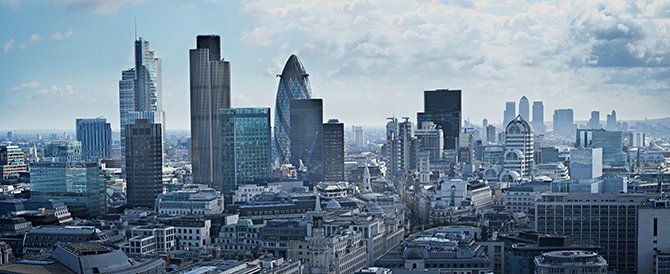I can highly recommend what London has to offer. Whether you’re an art aficionado, a foodie or a party animal, this city has something for you.
But there’s a darker side to London, which I will be talking about at TEDx Houses of Parliament today. Few see it, but this great world city plays a central role in fuelling corruption in some of the poorest or most violent countries in the world. What’s more, some of our most obvious assets – our bankers, our lawyers, our courts, our property market – play a major role in making it happen.
Take the case of Nigeria’s missing billion. In 2011 two oil companies, Shell and Italy’s Eni, paid $1.1billion for the rights to a lucrative Nigerian oil concession called OPL245. They paid the money to the Nigerian government, which then made another payment for an identical amount to a company called Malabu Oil and Gas. This company was secretly owned by a man called Dan Etete, who had been the Nigerian oil minister at the time the block was originally awarded some years before.
Etete had awarded the oil rights to his own company, and was now cashing in on his corruption.

Clearly, it’s murky stuff, but what’s it got to do with Britain? Well, when one of the middlemen in the deal later sued Malabu in the British High Court for the $200 million cut he was due, it came out that Etete was the real owner of Malabu.
This should have set alarm bells ringing all over the place. So what did the court do, when presented with what looks like such a clear cut case of corruption? It awarded the middleman over $100 million and let Etete’s company keep its share. The police, the CPS and several government departments know about this, but haven’t stopped the money being paid out. This beggars belief. Imagine the outrage if the courts were used to divvy up the proceeds of a drug deal or a bank robbery in this way.
It’s not just the courts helping out the corrupt and the criminal, either. Dictators, gangsters and other criminals like hiding their cash in our banks and property market too. A few years ago we showed how Natwest, Royal Bank of Scotland, UBS and HSBC banked millions that had been paid in bribes to corrupt Nigerian state governors. One of those governors sunk some of his corrupt profits into four luxurious houses in north London. The fact that this dirty money is stashed in London is not a side effect of the corruption that happens in Nigeria; it is what helps it to happen.
In some cases, citizens can get so fed up with the state looting they pour onto the streets in protest and dictators finally turn toxic with the authorities here. After Gaddafi fell in 2011, the UK suddenly froze and seized his family’s assets, including the £10 million house in Hampstead that his son Saif owned through a British Virgin Islands company. But it was too late – the money had been lost to the Libyan people, and its theft had fomented a revolution that has cost countless lives and whose consequences are still playing out.
That is the point I want to make today at TedX Houses of Parliament. Ill-gotten gains do not disappear by themselves, you need to stash them somewhere. By providing such hiding places in a stable and supposedly respectable economy, our banks, courts and property market are helping make all this corruption possible. Just recently, we’ve seen how deposed Ukrainian president Viktor Yanukovych used an anonymous company registered in the UK to hide the ownership of a lavish palace compound. Unless we do something about it, the pattern will continue and deepen.
All this makes even less sense when as a British taxpayer, you stop and think about how much we give poor countries in development aid. We support Nigeria with £275 million a year, for example. I’m not suggesting we stop the aid, it’s really needed. But I am suggesting that we stop undermining it by assisting the corruption that diverts other revenues away from the public purse.
We must not shrug our shoulders. This is not just how the world is, it is a world we in London have helped create. That means we can be part of the solution. The UK has led on other anti-corruption measures, but they won’t work unless we address these blind spots quickly.
Banks need to be regulated properly so they don’t accept corrupt funds. Our courts cannot be allowed to legitimise corrupt deals. And perhaps its time for the Land Registry to list the real owners of properties here, not just the offshore companies they’re hiding behind.
The government is due to launch its new anti-corruption strategy next month. We’re watching.